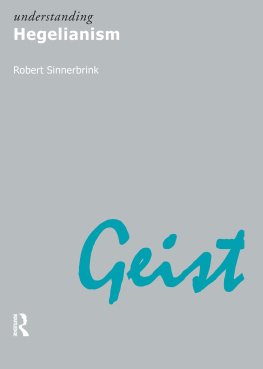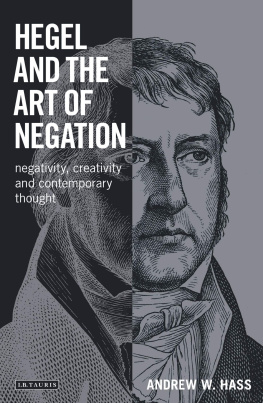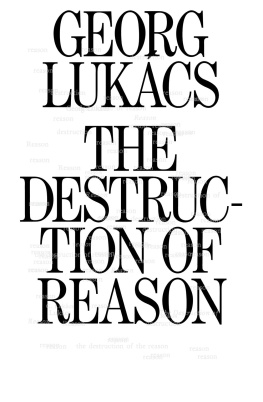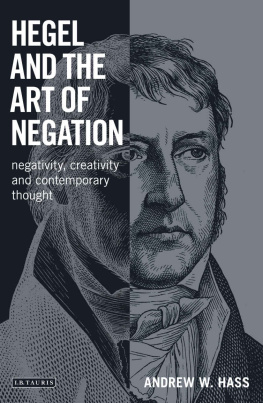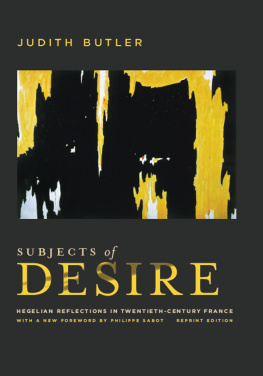understanding Hegelianism
Understanding Movements in Modern Thought
Series Editor: Jack Reynolds
This series provides short, accessible and lively introductions to the major schools, movements and traditions in philosophy and the history of ideas since the beginning of the Enlightenment. All books in the series are written for undergraduates meeting the subject for the first time.
Published
Understanding Empiricism
Robert G. Meyers
Understanding Existentialism
Jack Reynolds
Understanding Hegelianism
Robert Sinnerbrink
Understanding Hermeneutics
Lawrence K. Schmidt
Understanding Phenomenology
David R. Cerbone
Understanding Poststructuralism
James Williams
Understanding Utilitarianism
Tim Mulgan
Understanding Virtue Ethics
Stan van Hooft
Forthcoming titles include
Understanding Ethics
Tim Chappell
Understanding Feminism
Peta Bowden and Jane Mummery
Understanding German Idealism
Will Dudley
Understanding Naturalism
Jack Ritchie
Understanding Pragmatism
Axel Mueller
Understanding Psychoanalysis
Joanne Faulkner
and Matthew Sharpe
Understanding Rationalism
Charlie Heunemann
understanding Hegelianism
Robert Sinnerbrink
For Eva and Mimi
First Published 2007 by Acumen
Published 2014 by Routledge
2 Park Square, Milton Park, Abingdon, Oxon OX14 4RN
711 Third Avenue, New York, NY 10017, USA
Routledge is an imprint of the Taylor and Francis Group, an informa business
Robert Sinnerbrink, 2007
This book is copyright under the Berne Convention.
No reproduction without permission.
All rights reserved. No part of this book may be reprinted or reproduced or utilised in any form or by any electronic, mechanical, or other means, now known or hereafter invented, including photocopying and recording, or in any information storage or retrieval system, without permission in writing from the publishers.
Notices
Practitioners and researchers must always rely on their own experience and knowledge in evaluating and using any information, methods, compounds, or experiments described herein. In using such information or methods they should be mindful of their own safety and the safety of others, including parties for whom they have a professional responsibility.
To the fullest extent of the law, neither the Publisher nor the authors, contributors, or editors, assume any liability for any injury and/or damage to persons or property as a matter of products liability, negligence or otherwise, or from any use or operation of any methods, products, instructions, or ideas contained in the material herein.
ISBN: 978-1-84465-093-4 (hardcover)
ISBN: 978-1-84465-094-1 (paperback)
British Library Cataloguing-in-Publication Data
A catalogue record for this book is available from the British Library.
Typeset by Graphicraft Limited, Hong Kong.
Contents
This book is intended to introduce one of the richest movements in modern philosophy. Hegelianism presents one possible path into modern European or Continental philosophy, which we can understand as a series of complex responses to Hegel. In what follows, I show how Hegelian and anti-Hegelian currents of thought shaped some of the most significant movements in twentieth-century European philosophy, from existentialism, Marxism and phenomenology to critical theory and poststructuralism. I foreground the Hegelian themes of the unhappy consciousness, the master/slave dialectic and the struggle for recognition, which have proven very fertile for German critical theory as well as for postwar French philosophy. I also consider the problem of modernity, theories of recognition, and the deconstruction of dialectic, important themes that are all profoundly indebted to Hegelian thought. On the other hand, Hegel has had a largely negative impact on the development of analytic philosophy; fortunately, this has recently begun to change with the emergence of analytic neo-Hegelianism (see Rockmore 2005). While I deal primarily with what I loosely call German and French appropriations of Hegelian thought, I also make some brief remarks on analytic neo-Hegelianism in my concluding discussion.
The book is structured into three parts. It begins with a brief introduction to key elements of Hegels philosophy, and an overview of some of the main figures in the competing Right and Left Hegelian schools. I suggest that two of the most famous critiques of Hegelian thought Kierkegaards existentialism and Marxs materialism represent the defining poles of subsequent Hegelian and anti-Hegelian movements. These existentialist and Marxist currents comprise a conceptual matrix that can help us understand developments in twentieth-century Hegelian and anti-Hegelian thought.
The second part takes up these themes by looking at the contrasting critiques of Hegel presented by Marxist philosopher Georg Lukcs and existential phenomenologist Martin Heidegger. Lukcss theme of reification and Heideggers critique of Hegel as a Cartesian metaphysician set the stage for the appropriation of Hegelian themes in German critical theory and for the critique of Hegelianism in French poststructuralism. I then consider various Hegelian critiques of modernity of modern reason, society, culture and conceptions of subjectivity in the critical theory tradition, focusing on Adorno and Horkheimers Dialectic of Enlightenment and on Adornos negative dialectics. This is followed by an examination of the role of Hegelian themes in the work of Jrgen Habermas and Axel Honneth, who strongly emphasize the Hegelian concept of recognition for developing a critical theory of intersubjectivity and of modern society.
In the third part, I turn to the rich tradition of Hegelianism within twentieth-century French philosophy, beginning with the existentialist Hegelianism of Jean Wahl, Alexandre Kojves Heideggerian-Marxist reading, and Jean Hyppolites hybrid interpretation, which drew upon both existentialist and Marxist impulses. I then explore the ways in which French existentialism and phenomenology were both marked by a significant engagement with Hegelian thought. Here I focus upon Jean-Paul Sartres existentialist critique of Hegel, Simone de Beauvoirs ambiguous engagement with Hegelian themes in The Second Sex , and conclude with a discussion of Merleau-Pontys account of Hegelian existentialism and the question of a post-Hegelian hyperdialectics. Finally, I consider the radical critique of Hegelianism articulated by French poststructuralist thinkers Gilles Deleuze and Jacques Derrida, whose attempts to construct a post-Hegelian philosophy of difference involve a complex critical relationship with Hegel. Can Hegelianism be overcome through an anti-dialectical conception of difference? Or does it require a complex deconstruction of its scope and limits? Can the philosophy of difference construct an alternative to Hegelian dialectics?
In conclusion, I gesture briefly towards contemporary thinkers (such as Judith Butler and Slavoj iek)), whose work productively appropriates Hegelian themes while also integrating the critiques of Hegel found in critical theory and in poststructuralism. Their work, along with the Hegel renaissance in contemporary post-analytic philosophy, demonstrates the fertility of Hegelianism for contemporary thought. The argument developed in the book as a whole is that the conflict between much contemporary French and German thought derives from conflicting responses to Hegel: French Hegelianism emphasized the unhappy consciousness, the master/slave dialectic, and attempted to transform Hegelian dialectics into a philosophy of difference; German Hegelianism underscored Hegels theory of modernity, his defence of an expanded theory of rationality, and his thematizing of recognition as part of a theory of social intersubjectivity. I suggest that a proper understanding of the plural and conflicting nature of Hegelianism might clear a path for a productive rapprochement between these two often conflicting perspectives defining modern European philosophy.

